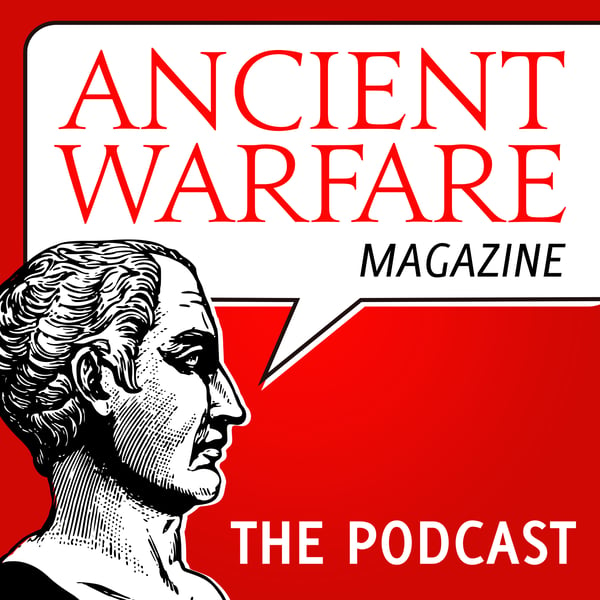AWA210 - The Roman version of Marathon
Ancient Warfare Podcast
The History Network
4.4 • 631 Ratings
🗓️ 29 July 2022
⏱️ 11 minutes
🧾️ Download transcript
Summary
A few months ago, in response to episode AW137, where the team discussed the Greco-Persian war, Maxnet got in touch via Facebook to ask which source was Murray quoting with respect to the Battle of Marathon. Murray explains the sources.
Join us on Patron
patreon.com/ancientwarfarepodcast
Transcript
Click on a timestamp to play from that location
| 0:00.0 | Hi everyone and welcome to another episode of ancient warfare answers with me, |
| 0:09.0 | Murray Dam. It's ancient warfare answers with Murray. Today I've got a question, which came through |
| 0:15.0 | anonymously and pulled us up on something I'm, yes, I think it might have been me. |
| 0:22.0 | In your video on the Greco-Perspersian wars I heard one of you told a version of the battle of marathon that I've never |
| 0:27.0 | heard about but it never heard about it before but I didn't catch the name of the historian you |
| 0:31.6 | were quoting from so what was his name I think you said he was a roman so that made me get |
| 0:36.1 | very guilty and I couldn't track down exactly what I'd said. |
| 0:39.1 | So I have deemed to answer this question, assuming that I was the one who was guilty. |
| 0:44.8 | If it was not me, then I'm taking the blame for someone else. |
| 0:48.3 | And of course, I will attempt to answer that question, which is, I think it's either Plutarch or it's probably Cornelius Nepos. |
| 0:58.4 | Now, Cornelius Nepos is writing in the first century AD. |
| 1:02.3 | He writes A Life of Miltiades, who of course is the Athenian general who's given credit for winning the Battle of Marathon in the ancient Greek sources very soon |
| 1:13.3 | after the battle. I think that's a fascinating aspect in itself because he's one of 10 generals, |
| 1:20.4 | but his son, Kaimon, is the leading general in the generation after Marathon. And lo and behold, |
| 1:27.2 | when Herodotus tells us the story of the Battle of Marathon, |
| 1:29.8 | it's Militaries to whom all credit is given, which is a little bit. |
| 1:33.7 | Anyway, in the life of Miltides, Cornelius Nepos talks about the idea that the Greeks were in a part of the plane of marathon where there were trees. |
| 1:50.8 | And depending on how you translate the passage, |
| 1:53.2 | it could be that the trees were cut down to defend the flank of the Athenians so that they couldn't be outflanked by the Persian |
| 2:05.7 | cavalry. And if that's the case, then you've got a really interesting version of the battle |
| 2:13.5 | that we don't get in any other source. So, for instance, the LERB translation has, |
| 2:19.1 | the army was drawn up at the foot of the mountain and a part of the plane that was not wholly open |
... |
Please login to see the full transcript.
Disclaimer: The podcast and artwork embedded on this page are from The History Network, and are the property of its owner and not affiliated with or endorsed by Tapesearch.
Generated transcripts are the property of The History Network and are distributed freely under the Fair Use doctrine. Transcripts generated by Tapesearch are not guaranteed to be accurate.
Copyright © Tapesearch 2025.

